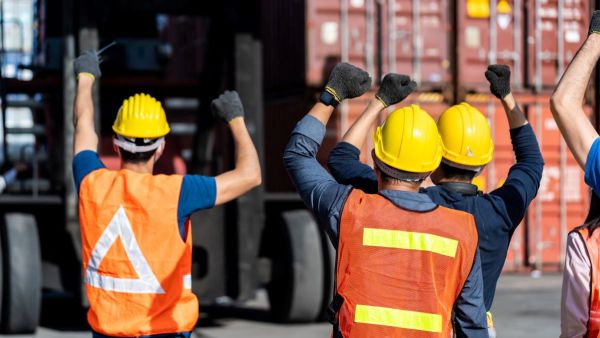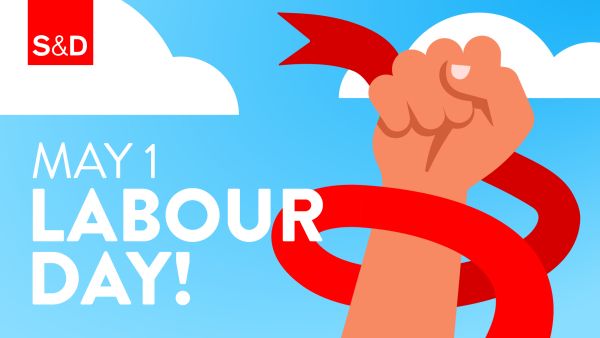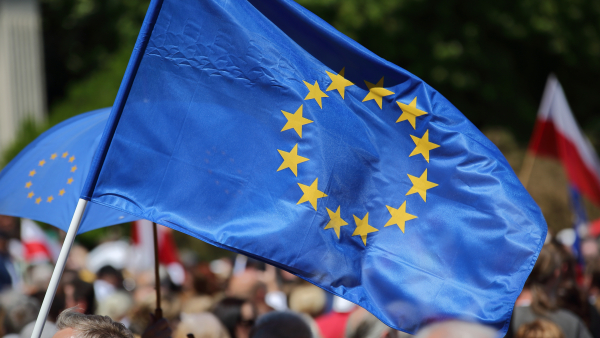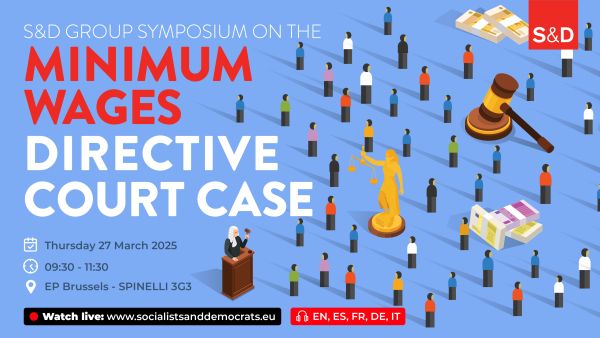Improved checks, stronger sanctions for companies that don't respect the rules and much greater social convergence, especially through establishing social rights as a pillar of European policy. These are the key issues identified by S&D MEP Guillaume Balas to fight social dumping (the exploitation of migrant labour to undercut local prices) in Europe. These proposals are the key priorities in a report adopted with a large majority in the European Parliament's employment and social affairs committee today.
After the vote, Guillaume Balas MEP warned:
"Today, social dumping is rife in many important sectors of our economy: construction, building and road transport. It undermines the faith of citizens in the European project. The Commission and EU member states must find ways to put an end to this without further delay. We must re-establish the primacy of workers' rights and social rights above economic freedoms."
S&D Group spokesperson for employment and social affairs Jutta Steinruck MEP added:
"The Socialists and Democrats in the European Parliament have long been calling for a revision of the Posting of Workers Directive to fight social dumping effectively and ensure fair competition. We need to codify the principle of 'equal pay for equal work in the same place' and introduce an unconditional system of joint and several liability where claimants can pursue an obligation against any one of the defendants, covering all economic sectors."
The proposals include:
- EU member states must ensure that their labour inspection systems have sufficient funding and staff to carry out their tasks.
- Co-operation between the relevant national authorities across Europe needs significant improvement to tackle social security fraud, fake self-employment and 'letter-box companies' which have no real activities in the EU countries they claim to be based in.
- Member states should be able to put together joint teams from their labour inspection forces to conduct on-the-spot investigations in cases where social dumping is suspected.
- The European Parliament calls for the creation of a blacklist of European companies who commit serious violations of labour and social codes and legislation. The blacklist would be available to national authorities and the companies involved would find themselves barred from public contracts, public subsidies and European funding for a mandatory period.
- Posting of workers declarations should be compiled in a European register.
- The principle of equal treatment should be applied to local workers and posted workers, and the collective agreements of the EU member state welcoming workers must be respected.
- Working and resting times in the road transport sector should be checked more thoroughly and a European road transport agency should be created to make sure there is better co-operation between EU countries. Any further liberalisation of cabotage (transport operators from one country working in another) should be rejected.
- EU member states should revise their legislation to ensure high-quality contracts in the field of aviation.
- Fundamental rights must be protected by ensuring European legislation respects the rights of trade unions, collective agreements and the equal treatment of workers.
- Social rights must be a pillar of European policy to facilitate upward social convergence.
- The Commission must evaluate the social and economic impact on the single market of the different levels of national social security contributions paid by employers and employees.
- EU member states are encouraged to introduce a minimum wage set at at least 60% of the average gross salary of each state.
- The Commission and member states should take action at a European level to respond to the problems linked to sub-contracting, especially in terms of extending joint and several liability in the sub-contracting chain.
- The Commission should examine the possibility of creating an instrument to introduce a duty of care for companies with regard to their subsidiaries and sub-contractors operating overseas.








